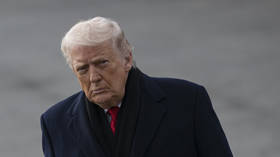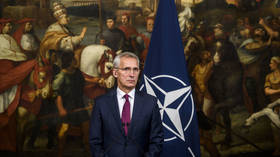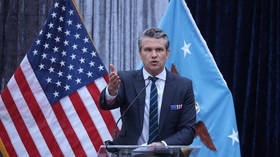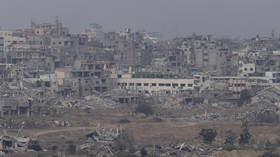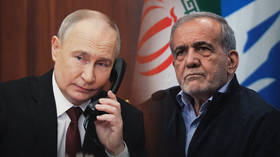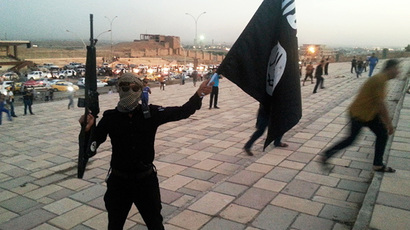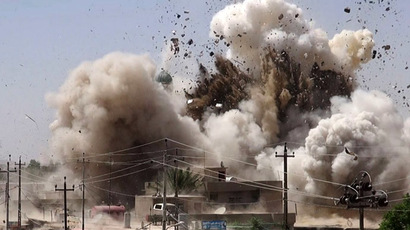Iraq loses control of chemical weapons depot to ISIS militants
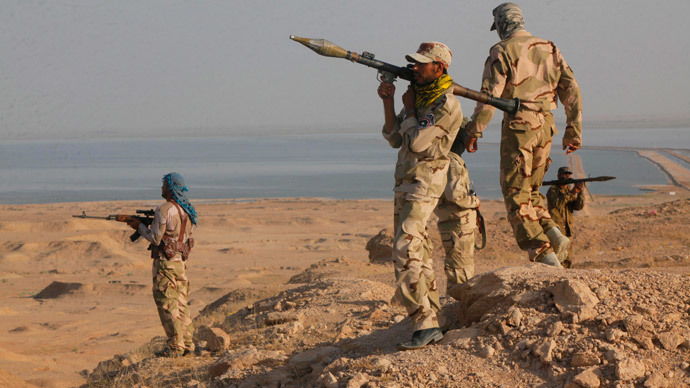
The Iraqi government has informed the United Nations that it has lost control of a former chemical weapons depot to Islamist insurgents affiliated with ISIS, or IS, and cannot carry out its obligations to destroy what’s stored in the compound.
In a letter penned by Iraq’s UN Ambassador Mohamed Ali Alhakim, it was revealed that “armed terrorist groups” took over the Muthanna complex on June 11. Located north of Baghdad, the facility was the main center for chemical weapons production prior to the 1991 Gulf War, and is still home to 2,500 rockets containing the lethal nerve agent sarin.
According to the Associated Press, the compound is now in the hands of the Islamic State extremist group, also known as the Islamic State of Iraq and Syria (ISIS). In the letter to UN Secretary General Ban Ki-moon, Alhakim said that Iraqi officials witnessed the intruders looting some of the equipment before the surveillance system was taken offline.
As RT reported previously, ISIS’ rapid gains through northern and western Iraq – the militants also control portions of Syria – have led it to shed part of its name and declare the territory under its control to be a new Islamic state, or caliphate. The group is primarily composed of radical Sunni Muslims, and has won support among those in Iraq disgruntled with the exclusive nature of Iraq’s Shia-dominated central government.
Until the Iraqi government can recover control of the Muthanna facility and stabilize the country’s security situation, Alhakim said it cannot make progress in eliminating the leftover chemical weapons stockpile.
"The Government of Iraq requests the States Members of the United Nations to understand the current inability of Iraq, owing to the deterioration of the security situation, to fulfill its obligations to destroy chemical weapons," he said, as quoted by Reuters.
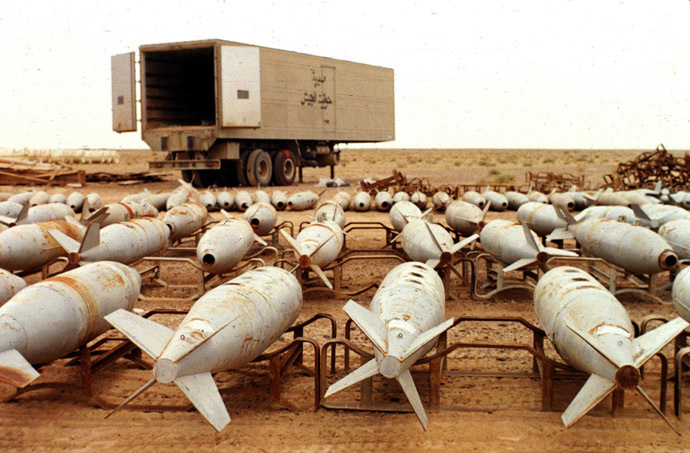
It’s unclear exactly what the Islamic State was able to obtain from the facility, but American officials said that whatever is still in the compound is largely ineffective and perhaps impossible to even move. Speaking in late June about the compound’s takeover, US State Department spokeswoman Jen Psaki said that while the situation is troubling, the leftover stockpile does not include “intact chemical weapons ... and would be very difficult, if not impossible, to safely use this for military purposes or, frankly, to move it."
This sentiment was echoed by US Defense Department spokesman Rear Admiral John Kirby, who told Reuters, "We aren't viewing this particular site and their holding it as a major issue at this point. Should they even be able to access the materials, frankly, it would likely be more of a threat to them than anyone else."
Still, Alhakim’s letter to the UN highlighted two specific bunkers when referring to the compound’s capture, the contents of which were revealed by the AP via a 2003-era UN report.
In Bunker 13 were 2,500 sarin-filled chemical rockets – all produced before 1991 – and 180 tons of the “very toxic chemical” sodium cyanide. Bunker 41, meanwhile, contained 2,000 empty artillery shells that were contaminated with mustard gas, more than 600 one-ton mustard containers holding residue, and severely contaminated construction material. These could not be used for warfare, but they are still “highly toxic.”
When the Iraqi government will be able to regain control of the chemical weapons depot also remain unknown, as lawmakers are still debating over what kind of government to form in order give themselves the best opportunity to unite the country and strike back against the Islamic State militants.


